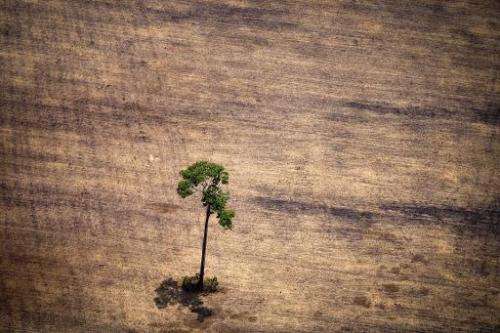Brazil carbon emissions rise for first time in decade

Brazil's carbon dioxide emissions have risen for the first time in a decade, mainly due to increased deforestation, the Climate Observatory said Wednesday.
Emissions jumped 7.8 percent in 2013 over 2012 and the country produced 1.5 billion tons of greenhouse gases last year, according to a report from the non-governmental organisation.
The study said it was a reversal of a decade-long trend of decreased carbon outputs.
"The rise in CO2 emissions in 2013 reverses a trend going back to 2005, when they fell year after year," it said, adding that the main reason for the jump was increased deforestation in the Amazonia region.
Emissions from deforestation climbed 16.4 percent, while outputs from the energy sector increased by 7.3 percent.
Over the past decade, Brazil had ramped down its greenhouse gas emissions by reducing deforestation in Amazonia.
The destructive practise reached a historic low in 2012 before rising 29 percent last year.
"The report serves as a warning for us by showing that Brazil is starting to increase greenhouse gas emissions," Observatory director Carlos Rittl told AFP.
He added that other sectors, including agriculture, industry and energy, also increased emissions, which went undetected in the years that deforestation levels were low.
"The fall in deforestation masked the fact other sectors were increasing emissions," Rittl said.
Brazil has vowed to reduce emissions by up to 39 percent by 2020 and said it would slash deforestation in Amazonia by 80 percent.
The South American nation ranks as the seventh largest global producer of greenhouse gases, with its emissions of 7.8 tons per capita surpassing the global average of 7.2 tons per person.
The Observatory noted that Brazil, which has a population of 200 million, has yet to define the country's contribution to a universal climate accord due to be drawn up next year.
© 2014 AFP




















